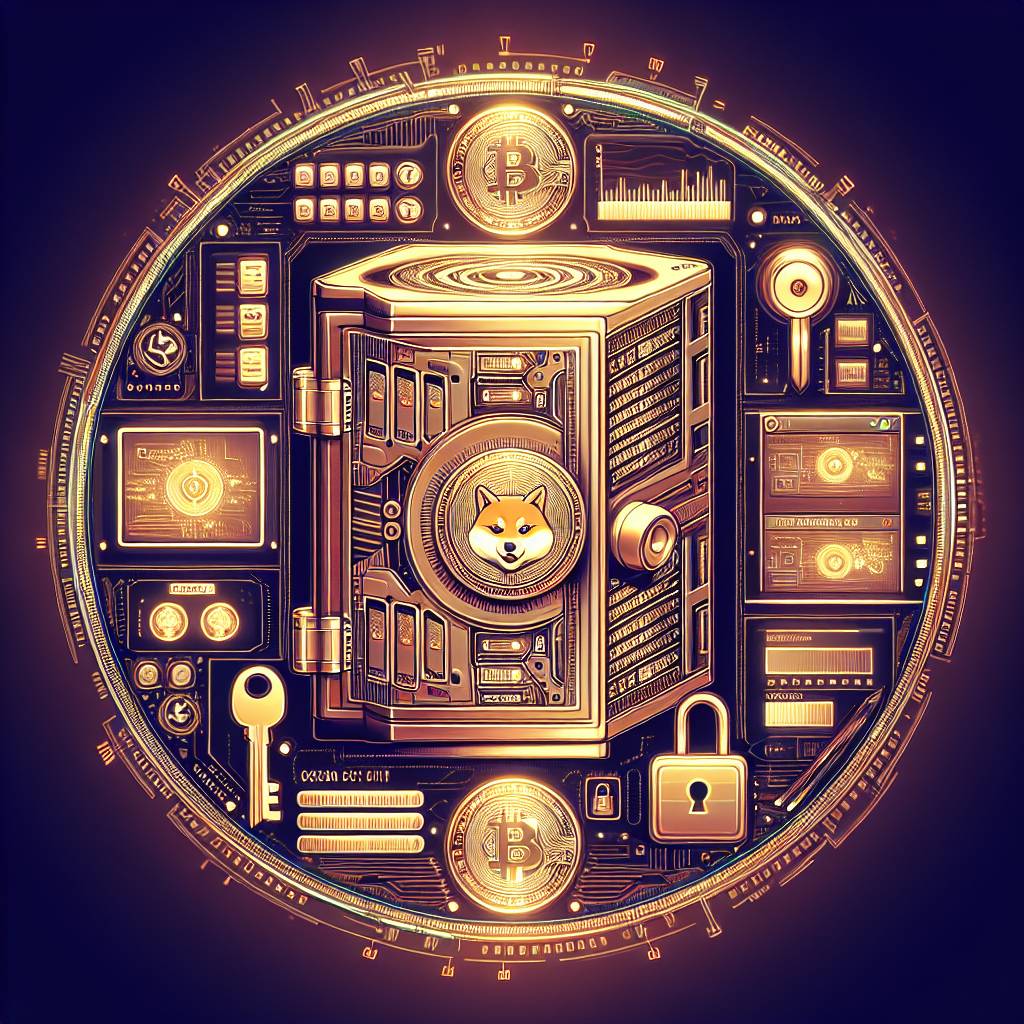How can I store and secure my cryptocurrencies?
What are the best ways to store and secure my cryptocurrencies?

3 answers
- One of the best ways to store and secure your cryptocurrencies is by using a hardware wallet. Hardware wallets are physical devices that store your private keys offline, making them less vulnerable to hacking. They provide an extra layer of security by requiring you to physically confirm transactions on the device. Some popular hardware wallets include Ledger Nano S and Trezor. Make sure to purchase hardware wallets directly from the manufacturer or authorized resellers to avoid counterfeit devices. Another option is to use a software wallet. Software wallets are applications that you install on your computer or mobile device. They offer convenience and accessibility, but they are more susceptible to malware and hacking compared to hardware wallets. It's important to choose a reputable software wallet and keep your device and software up to date. Additionally, you can store your cryptocurrencies on a cryptocurrency exchange. However, this method is considered less secure as exchanges have been targeted by hackers in the past. If you choose to store your cryptocurrencies on an exchange, make sure to enable two-factor authentication (2FA) and use strong, unique passwords. It's also recommended to only keep a small amount of your cryptocurrencies on the exchange and transfer the rest to a hardware or software wallet. Remember to regularly backup your wallet and keep your recovery phrase or seed phrase in a safe and secure location. This will allow you to recover your cryptocurrencies in case your wallet is lost, stolen, or damaged. Overall, the key to storing and securing your cryptocurrencies is to use a combination of hardware wallets, software wallets, and exchanges, while following best security practices such as enabling 2FA and keeping your devices and software up to date.
 Dec 24, 2021 · 3 years ago
Dec 24, 2021 · 3 years ago - Storing and securing your cryptocurrencies is crucial to protect your investment. One option is to use a paper wallet, which is a physical copy of your private and public keys. Paper wallets are considered one of the most secure methods as they are not connected to the internet. However, they require extra caution as they can be easily lost or damaged. Another option is to use a multisignature wallet, which requires multiple signatures to authorize transactions. This adds an extra layer of security as it prevents a single point of failure. Multisignature wallets are commonly used by businesses and organizations that require multiple individuals to approve transactions. You can also consider using a cold storage solution, such as storing your cryptocurrencies on an offline computer or a dedicated hardware device. Cold storage keeps your private keys offline, making them less vulnerable to hacking. However, it may be less convenient for frequent transactions. In addition to choosing the right storage method, it's important to stay vigilant and protect yourself from phishing attacks and scams. Be cautious of suspicious emails, websites, and social media accounts that may try to trick you into revealing your private keys or login credentials. Remember, the security of your cryptocurrencies ultimately depends on your own actions and precautions. Stay informed about the latest security practices and regularly update your wallets and devices to ensure the highest level of protection.
 Dec 24, 2021 · 3 years ago
Dec 24, 2021 · 3 years ago - At BYDFi, we prioritize the security of our users' cryptocurrencies. We recommend using a combination of hardware wallets and software wallets for storing and securing your cryptocurrencies. Hardware wallets, such as Ledger Nano S and Trezor, provide the highest level of security by storing your private keys offline. Software wallets, on the other hand, offer convenience and accessibility. When using a hardware wallet, make sure to purchase it directly from the manufacturer or authorized resellers to avoid counterfeit devices. Set up your hardware wallet following the manufacturer's instructions and keep your recovery phrase or seed phrase in a safe place. For software wallets, choose reputable providers and always download the wallet from official sources. Keep your software and devices up to date to protect against potential vulnerabilities. In addition to using wallets, enable two-factor authentication (2FA) whenever possible. This adds an extra layer of security by requiring a second verification step, such as a code sent to your mobile device. Lastly, be cautious of phishing attempts and scams. Always double-check the URLs of websites and be wary of unsolicited emails or messages asking for your private keys or login credentials. Remember, the security of your cryptocurrencies is in your hands. Take the necessary precautions to protect your investments and stay informed about the latest security practices.
 Dec 24, 2021 · 3 years ago
Dec 24, 2021 · 3 years ago
Related Tags
Hot Questions
- 82
How can I protect my digital assets from hackers?
- 60
What are the tax implications of using cryptocurrency?
- 49
How does cryptocurrency affect my tax return?
- 41
What are the best practices for reporting cryptocurrency on my taxes?
- 40
How can I minimize my tax liability when dealing with cryptocurrencies?
- 39
What are the best digital currencies to invest in right now?
- 37
What are the advantages of using cryptocurrency for online transactions?
- 32
What is the future of blockchain technology?
